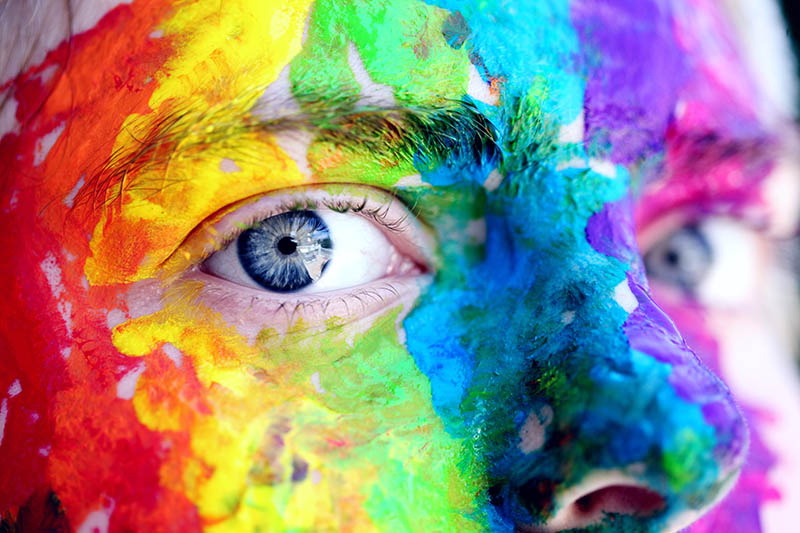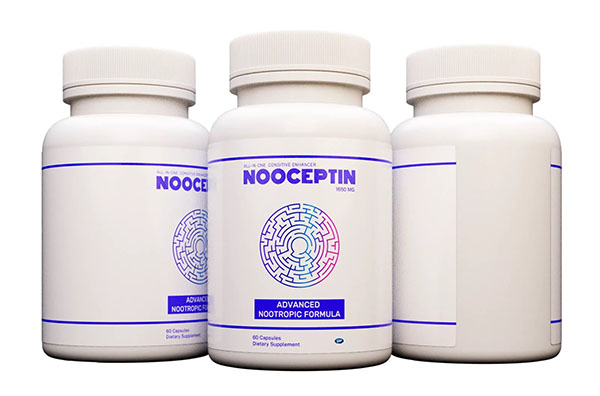
Modafinil is, in many ways, the archetypal smart drug. It is usually the nootropic compound that really gets people excited about cognitive enhancement, given that it has some fo the strongest effects of even the pharmaceutical-grade study drugs. Modafinil is probably as close to NZT-48 (the pill in the movie Limitless) as we are ever going to get.
While Modafinil obviously cannot make you more intelligent, what it can do is make you much more productive and extremely movitated. This makes it a highly effective nootropic for boosting cognitive function and productivity; perhaps the most effective for those purposes in existence.
The fact that Modafinil is purposefully designed to keep people locked into a ‘flow state’ for several hours without interuption, it should come of little surprise to learn that many artists have begun using the drug on a regular basis. If you know anything about how artists tend to work, then it stands to reason that a drug known for putting you into a state of intense focus and mental fluidity for 12 hours or more is going to be a popular choice among that group. The fact that Modafinil keeps you wide awake all night (when taken at the right time in the right doses) just makes the nootropic even more appealing to art students.
We were recently asked by a reader whether Modafinil makes you more creative.
The question is actually a fairly common one. There are many people on forums such as Longecity and Reddit talking about Modafinil helping them massively increase their artistic output. it is therefore easy to think that Modafinil must help you get creative. However, there is actually no evidence that Modafinil actually makes you more creative.
In this article, I’ll describe what Modafinil does to the brain and whether it can improve creativity. I’ll also discuss what nootropics like Modafinil do to improve creativity in practice; i.e. how taking them actually makes you think and act in a more creative way. For those with personal experience using Modafinil to boost creativity, please share your stories in the comments section at the end.
What does Modafinil do to the brain?
As the crown prince of smart drugs, modafinil promises enhanced memory, motivation and unceasing focus. The potential side effects of modafinil have been under-reported in the media. But, it seems that the drug’s benefits are more than worth the risks. Novelist MJ Hyland, who suffers from multiple sclerosis, wrote an admiring paean to modafinil in The Guardian.
One study examined the neuroprotective effects of modafinil on glutamate cytotoxicity in the hypothalamus. The authors found that modafinil prevented further reduction of GABA release in neurons exposed to glutamate, whereas it had no effect on the neurons that had not been exposed to glutamate. This suggests that modafinil may restore the neurosecretory coupling mechanism.
While modafinil’s antioxidative action is widespread, it is still unknown whether the drug’s effects are restricted to specific brain regions. However, its neuroprotective effects may be coincidental to its wake-promoting properties. The antioxidant effect may be due to the fact that modafinil reduces the level of adenosine (a substance that plays a role in sleep regulation) in the basal forebrain.
Does Modafinil boost creativity?
A recent study asked the question, Does Modafinil boost creativity? It examined the effect of 200 mg of the drug on healthy volunteers. The study included both placebo and modafinil groups. Participants completed a series of non-verbal tests to measure their creativity. In addition, they took a new battery of tests that measured task motivation. The results were statistically significant. Compared to placebo, participants were significantly more creative on tasks with higher difficulty. We can therefore say that Modafinil or Armodafinil is a good nootropic for creativity.
However, there are concerns about the drug’s long-term effects. Modafinil can cause side effects, and the researchers have not yet conducted a controlled study of its long-term effects. They have concluded that the drug has “selective adverse effects” on creativity. While this is not surprising, it is also important to keep in mind that there is no scientific evidence to support the claims that modafinil enhances creativity.
Other nootropics, such as nicotine, amphetamines, and Methylphenidate, have not been proven to boost creativity. But they have been shown to increase alertness and energy. They can also reduce stress and anxiety levels, which is essential for survival in a competitive academic environment. Hence, it is important to understand the possible side effects of Modafinil before taking it.
Does Modafinil motivate you?
Does Modafinil motivate you? The answer depends on what you want to achieve. The drug helps people increase their vigor, a combination of enthusiasm and absence of mood-related fatigue. The study did not use a placebo group, but the results point to an effect that frequent users report. In a study of pathological gamblers, Modafinil users reported no jitteriness or anxiety shortly after taking the drug.
Although Modafinil is a powerful productivity booster, there are some disadvantages. While it can increase mental performance, it can be addictive and cause sickness in users who abuse it. However, if used appropriately, it has few negative side effects and can actually help lower IQ levels. Here are some things to keep in mind when taking this drug. If you are suffering from low motivation, it can help you tackle tasks that you otherwise would not even consider undertaking.
The drug’s effects are similar to caffeine, but modafinil produces fewer side effects. It is a methylxanthine derivative and stimulates parts of the brain that are linked to wakefulness. Unlike caffeine, modafinil is more effective and less addictive, and it’s also safer. In addition, modafinil can only be obtained by prescription. So it’s important to ask your doctor about any side effects when taking it.
What nootropics increase creativity?
There is a growing biohacking movement that encourages people to experiment with different supplements to improve their cognitive functions, including what are known as nootropics. Nootropics are a class of cognitive enhancers that have been shown to increase creativity in humans. These compounds range from prescription drugs like Adderall to over-the-counter brands such as Nootrobrain, Piracetam, and TruBrain. There are many nootropic supplements, but one of the most well-known is Phosphatidylserine. This nootropic increases creativity by enabling the release of cortisol, a hormone produced by the body in response to physical stress. Cortisol is a chemical that promotes creativity, so it is important to be aware of potential side effects.
One of the best nootropics for artists and writers is ginseng, a synthetic derivative of Vitamin B1 that improves general creativity and verbal fluency. It may also improve memory, focus, and mood. Aniracetam, a member of the racetam family, is another effective nootropic for improving creativity. Both of these supplements are safe to take and are effective. However, you should consult a licensed physician before starting any new supplement or stack.
Phenibut: As a nootropic, phenibut was discovered in Russia. It has nootropic and anxiolytic properties, and has been found to reduce depression, anxiety, and social anxiety. Phenibut boosts GABA activity and dopamine release in the brain. It reduces depression and anxiety and promotes lucidity. Its effects on creativity are indirect, but it may help you achieve your creative goals.
How else can you boost creativity naturally?
Creative thinking requires a process of data collection and goal setting. For example, writing a paper requires the creation of an idea, collecting data, and analyzing similar works. Modafinil is an excellent tool to improve your creativity by delaying fatigue. In fact, it may be more effective for the preparation stage, where you spend the most time analyzing the problem and researching the solution. But don’t try using it during the illumination stage, when you’re most likely to be at your most creative.
Another supplement to help you boost your creativity is green tea. This tea contains L-theanine, an amino acid that aids relaxation and calmness. Monks have been known to include this substance in their meditation for its ability to inhibit serotonin and dopamine. It is also thought to reduce the brain’s activity, allowing a person to remain calm for longer periods of time. Theanine may also promote a smooth flow of ideas and stimulate more creative thinking.
And of course, there’s art therapy.
The science is clear on this; art therapy is highly effective at fostering creativity. If you’re struggling with a mental or creative block, then guided, focused art therapy can help open up new ways of thinking and allow you to see things in a new, artistic light.
Recent neuroscientific research has found that engaging with art actually increases dopamine levels in the brain. This means that creating or viewing art can mimmick some of the effects of smart drugs like Modafinil and Armodafinil. For those considering using Modafinil to be more creative, painting or drawing might be a safer, more productive option to try first!
Should you take Modafinil for creativity?
Should you take Modafinil for creativity or impulsivity? There is a mixed bag of evidence regarding the effects of this stimulant. In one study, modafinil users scored lower than their placebo counterparts on the ATTA test. This might suggest that modafinil can reduce divergent thinking in healthy adults, but there is also a chance that it may negatively affect creative abilities. This study was conducted on a small group of healthy people and has limited interpretation.
The study, carried out in controlled environments, found that modafinil improved decision-making, planning, flexible thinking, and coping with novelty but did not significantly impact creativity. While modafinil showed some benefits, the effects were more pronounced when subjects were given longer or more complex tasks. However, the drug was linked with a small drop in creativity in highly creative individuals. Therefore, the benefits of modafinil are still largely unrecognized.
Other studies have found that modafinil can reduce creative output. Studies have shown that it has a significant effect on verbal creativity. Researchers also found that people carrying the TPH1 gene had higher verbal creativity. However, the results were not as consistent. Although it is difficult to quantify the effectiveness of modafinil for creativity, it may still be the way to improve your creative output. If you have trouble focusing on tasks and you are lacking motivation, Modafinil may be the solution.
Looking For Something That Really Works?
See Our Current #1 Rated Cognitive Enhancer: Nooceptin

Nooceptin is our current top rated nootropic. We tried Nooceptin ourselves and found that it works exactly as advertised. Taken together, the ingredients rapidly increase focus, accelerate mental processing speeds, and enhance working memory.
Nooceptin is a truly comprehensive nootropic, providing both immediate and long-term benefits. It does not cause side effects and is considerably better value than other nootropic stacks on the market today.
Nooceptin has been found to effectively:
- ✔️ Boost Overall Cognitive Function
- ✔️ Improve Memory
- ✔️ Enable Better Communication
- ✔️ Enhance Concentration
- ✔️ Improve Multi-tasking
- ✔️ Boost Mental Energy
The really special thing about Nooceptin, however, is its long-term effects. When taken daily for prolonged periods, Nooceptin stimulates neuron growth and improves overall brain cell health. This means it enhances cognition in a deep, meaningful way that keeps giving you benefits after you stop using it.
Simply put, Nooceptin is the ideal brain supplement for people who need to mentally perform at 100% capacity for hours on end. At $69.99 per course, we think it's hard to find a more effective and cost-effective nootropic right now.

Brian Johnson is current Editor of Vagarights.com and a long-time writer for VAGA. A former psychologist, Brian is passionate about improving mental health and finding ways to stave off cognitive decline. He is an expert on nootropics, cognitive enhancement and biohacking more broadly. You can see his work on Google scholar.
Leave a Reply